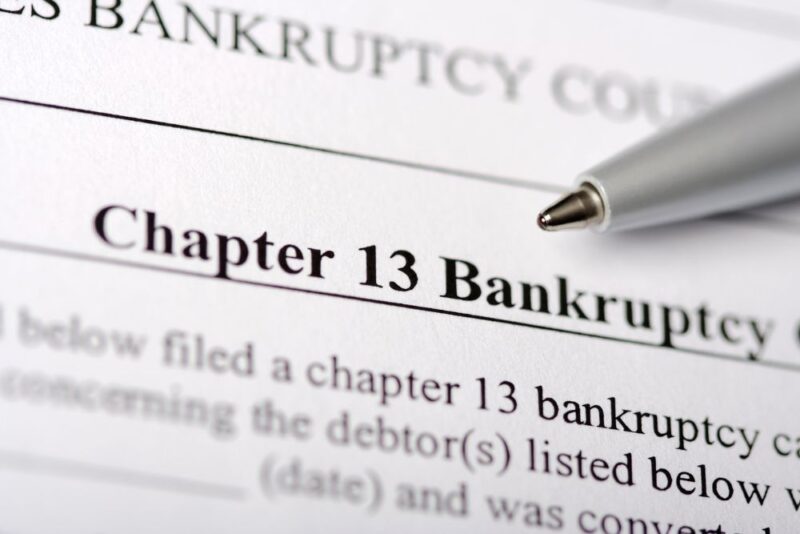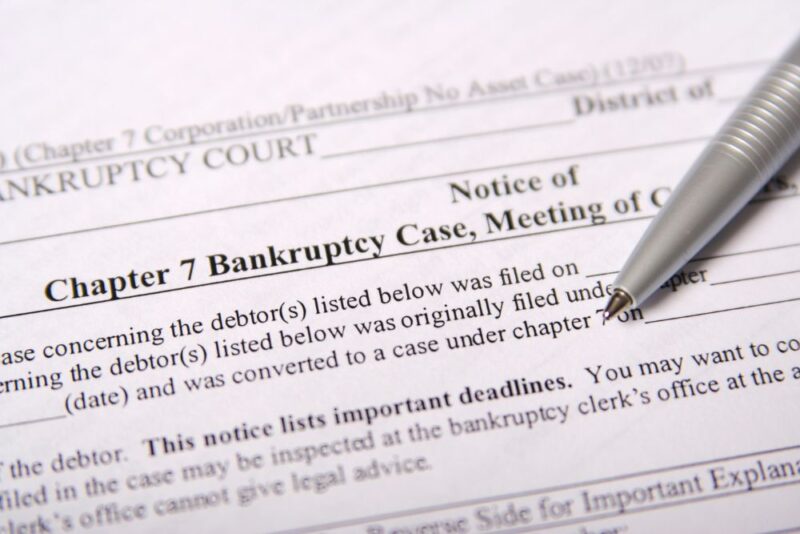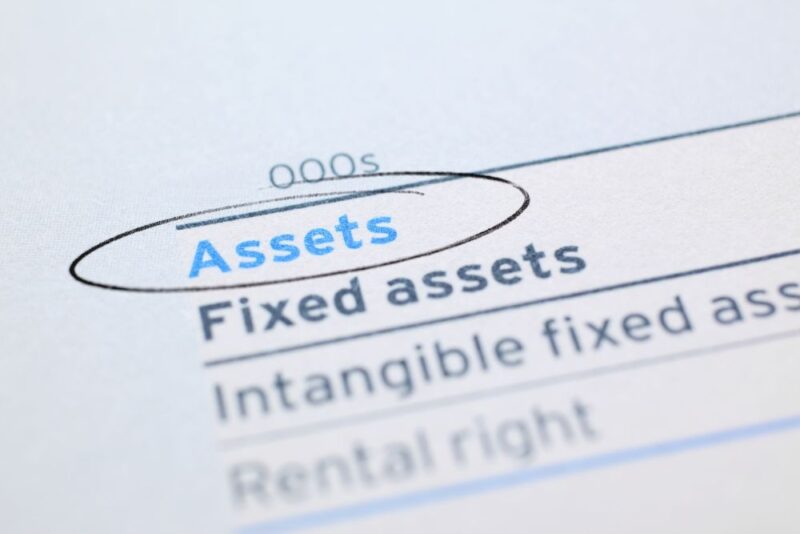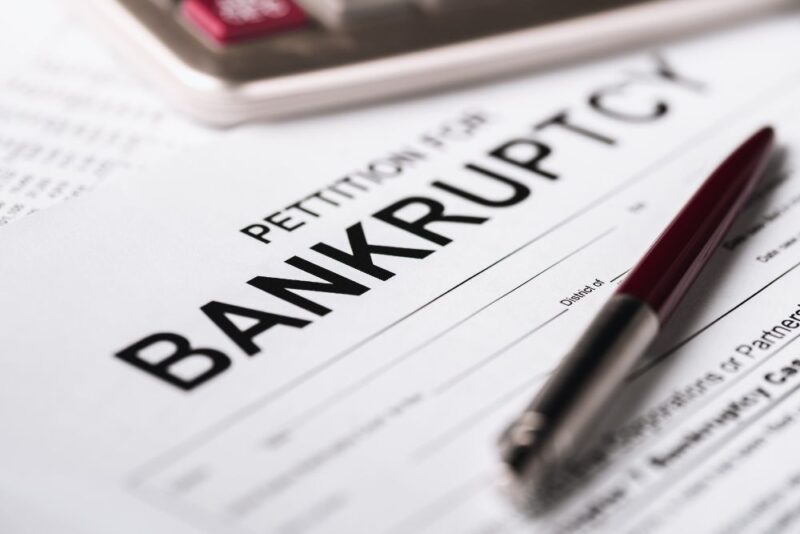Chapter 7 vs. Chapter 13 Bankruptcy: Which is Right for You in Indiana?
by Attorney S. Zachary T. Brock

Table of Contents
Introduction
Navigating the intricacies of bankruptcy can be daunting. At Indy Finance Law, we understand that declaring bankruptcy is an inherently stressful time and the emotions associated with such a decision can make the choices that come after that initial step seem much more overwhelming. Now that you have decided to take that first step to declare bankruptcy, you may be wondering what comes next.
There are two options to pursue, Chapter 7 and Chapter 13 filing, each with their own set of distinct advantages and considerations to assess pursuant to your unique financial situation. In this guide, we at Indy Finance Law aim to break down the critical differences between Chapter 7 and Chapter 13 bankruptcies in order to help Indiana residents make informed decisions that align with their distinct financial recovery goals.

Chapter 13 Bankruptcy: A Reorganization Approach
Chapter 13 bankruptcy, often referred to as a “wage earner's plan,” allows individuals with a regular and consistent income to develop a plan to repay all or part of their debts. Debtors propose a repayment plan to make installments to creditors over the course of approximately three to five years. Some examples of situations in which filing Chapter 13 bankruptcy would be pertinent are as follows:
Home Foreclosure: Chapter 13 bankruptcy can stop foreclosure proceedings and may give you a chance to catch up on missed mortgage payments over time.
Unsecured Debts: If you have significant amounts of unsecured debt but wish to retain all of your assets, Chapter 13 provides a framework to do so while repaying your debts based on your income and allowable expenses.
Non-dischargeable Debts: Chapter 13 can be beneficial if you have debts that cannot be discharged in Chapter 7, such as certain taxes or domestic obligations like alimony and child support. Through Chapter 13, you can include these in your repayment plan.
The advantage of Chapter 13 lies in its flexibility and the protection of your assets. It allows you to reschedule secured debts (other than a mortgage for your primary residence) and extend them over the life of the Chapter 13 plan, which can potentially lower your payments. Chapter 13 also has a special provision that safeguards third parties who are liable with the debtor on "consumer debts," which may protect co-signers.

Chapter 7 Bankruptcy: A Liquidation Approach
Chapter 7 bankruptcy offers a fresh start by discharging most of your debts while liquidating any non-exempt assets to pay back creditors. This option is best suited for individuals with limited income who cannot afford to pay back their debts. Key considerations for Chapter 7 include:
Income Limits: To qualify for Chapter 7 in Indiana, your income must be below the state median for your household size, or you must pass a means test that examines your financial records, including your income, expenses, and unsecured debt.

Asset Liquidation
While Chapter 7 can lead to the loss of certain assets, Indiana's bankruptcy exemptions allow you to keep essential property, like some equity in your home, a modest car, and personal belongings. Understanding these exemptions is crucial.
Rapid Discharge
One of the main benefits of Chapter 7 is the speed at which your dischargeable debts are eliminated, usually within 4 to 6 months from filing the bankruptcy petition.
Chapter 7 is particularly effective for those with a high ratio of unsecured debt (such as credit card debt, medical bills, and personal loans) to income, offering a way to eliminate those debts and start rebuilding financial security from a clean slate.

Making the Right Choice in Indiana
Making the decision between Chapter 13 and Chapter 7 bankruptcy hinges on several factors, including your income level, the types of debts you owe, your assets and their exemptions, and your financial objectives. Indiana residents considering bankruptcy should contemplate the following:
Asset Retention vs. Debt Elimination: Chapter 13 allows you to keep your assets and pay off your debts over time, whereas Chapter 7 focuses on eliminating your debts expediently but may require you to give up non-exempt assets. Both come with distinct advantages and disadvantages, so take time to consider what your assets are and if your preference is swift debt relief or maintaining ultimate control over your belongings.
Long-Term Financial Impact: Both types of bankruptcy will affect your credit score, which may influence your ability to secure short-term lending and impact other credit-report based decisions, but they also provide a pathway to rebuilding your financial stability. Take time to consider your long-term financial recovery strategy and goals when selecting which chapter is right for you.
Legal Guidance: Consulting with a knowledgeable bankruptcy attorney is invaluable in navigating the complexities of bankruptcy laws in Indiana. An attorney can provide personalized advice based on your unique financial situation to help you choose the route that offers the most significant benefit for your financial recovery. When choosing Chapter 7 or Chapter 13, do not hesitate to contact your local law experts in Indiana for a consultation. Let your local legal experts shoulder the burden of breaking the process down into layman's terms, so you can rest assured you are making the best financial decision you can for yourself without any additional stress or uncertainty.

Conclusion
While Chapter 13 and Chapter 7 bankruptcy each have their merits, the right choice depends on your specific circumstances and financial recovery goals. Indiana residents facing financial distress should carefully weigh the pros and cons of each option, taking into account their current financial situation, their future financial recovery, and the legal protections afforded by Indiana law. With the right strategy and guidance, bankruptcy can be a pivotal step toward regaining your financial footing and embarking on a path to financial freedom. Contact Brock Legal and get the answers you need.
FAQs On Bankruptcy in Indiana
Deciding to file for bankruptcy depends on individual circumstances. It’s recommended to consult with a bankruptcy attorney to evaluate your financial situation, understand the implications of bankruptcy, and determine if it is the most suitable option for your specific case.
Brock Legal LLC provides comprehensive guidance and legal assistance throughout the bankruptcy process. Our experienced attorneys can help you navigate the complexities of bankruptcy, manage your debt, and advise you on post-bankruptcy financial planning.
Bankruptcy can impact your credit report for up to 10 years, potentially affecting your ability to secure new loans or mortgages for some time. However, these effects are often balanced by the financial relief and fresh start that bankruptcy offers.
No, bankruptcy does not eliminate all debts. Obligations like alimony, child support, most student loans, certain taxes, and government fines typically cannot be discharged. However, it can effectively clear debts such as credit card balances, unsecured loans, and medical bills
The most common cause of bankruptcy in the U.S. is medical debt, not financial irresponsibility. Other significant causes include job loss, divorce, illness or injury impacting income, and unforeseen expenses.
Bankruptcy provides a structured legal process to manage overwhelming debt. In Chapter 7 bankruptcy, most of your debts can be discharged, while Chapter 13 involves a repayment plan. It can also stop home foreclosures, prevent wage garnishments, and cease creditor harassment.
Attorney S. Zachary T. Brock

Attorney S. Zachary T. Brock
Zach empowers individuals faced with financial challenges by providing them with effective solutions and unwavering support in the areas of consumer finance and bankruptcy law.
By actively listening and empathizing with each client, Zach works to gain a deep understanding of every individual or family’s unique circumstances. This helps him tailor his legal strategy to best meet the needs of each client.
“No matter what may be weighing you down financially, Brock Legal is here to help. My mission is to help navigate you through whatever stressful circumstance you may be faced with, by offering unparalleled education and service in the areas of consumer finance and bankruptcy law. Let us show you how our firm can help. Contact Brock Legal today!”
-Zach



